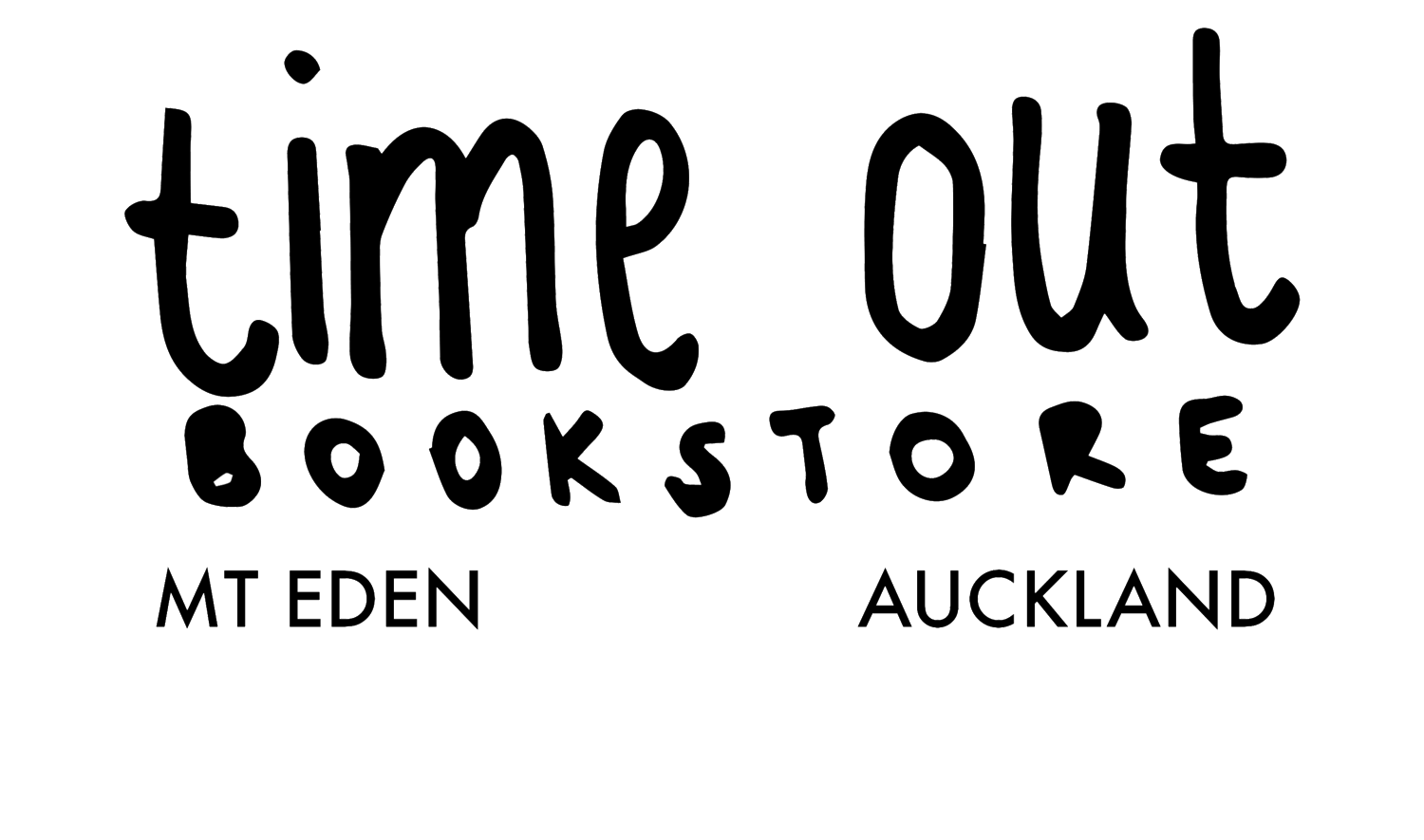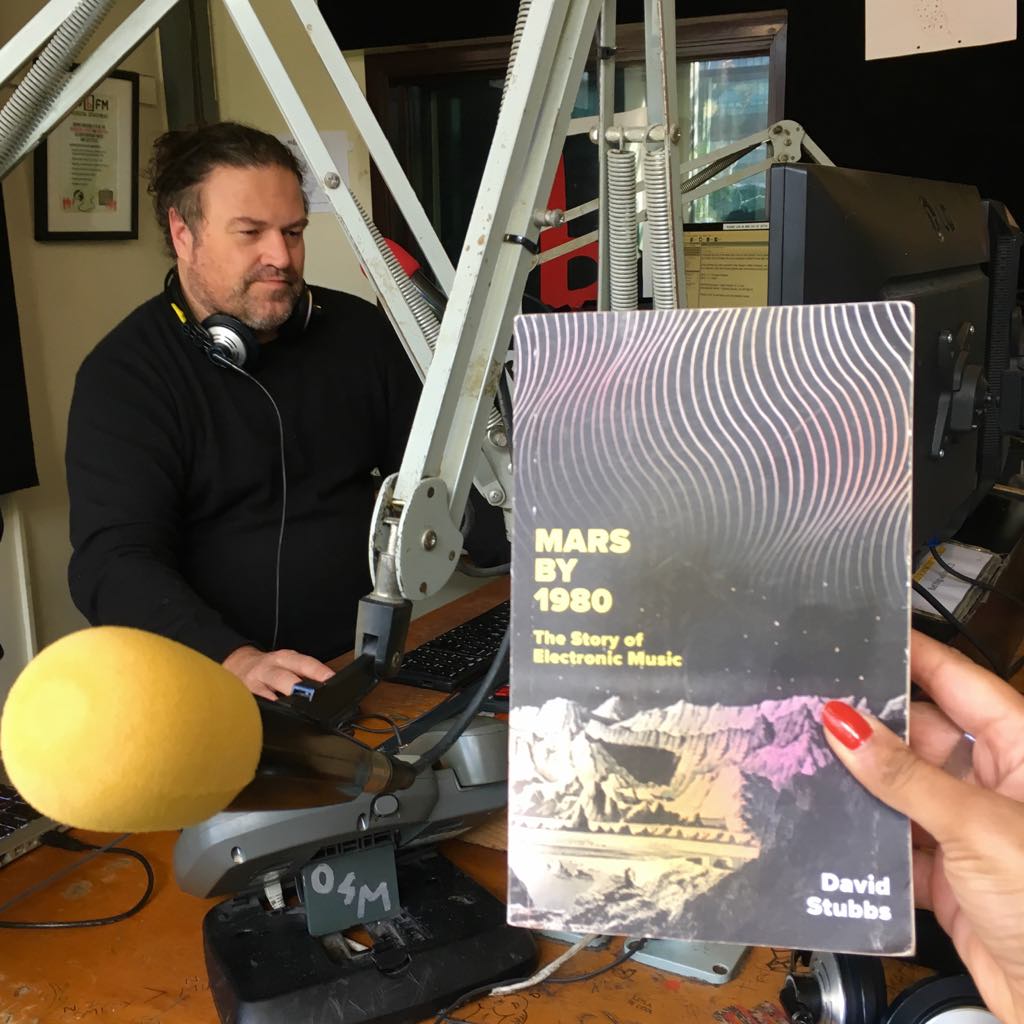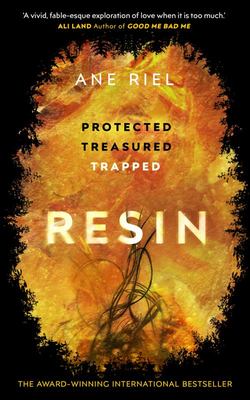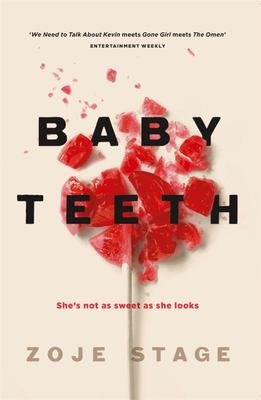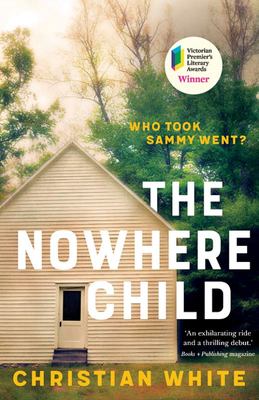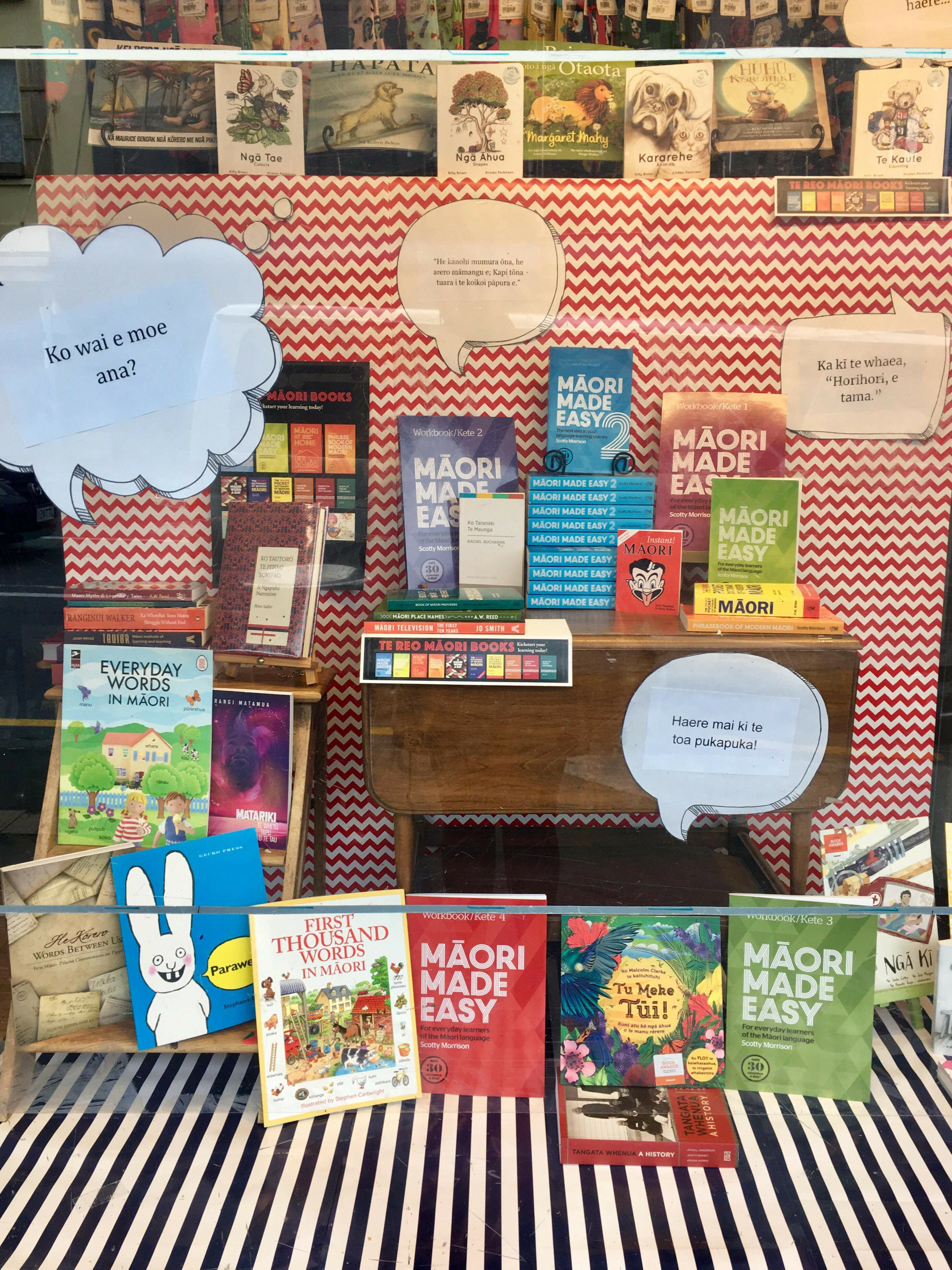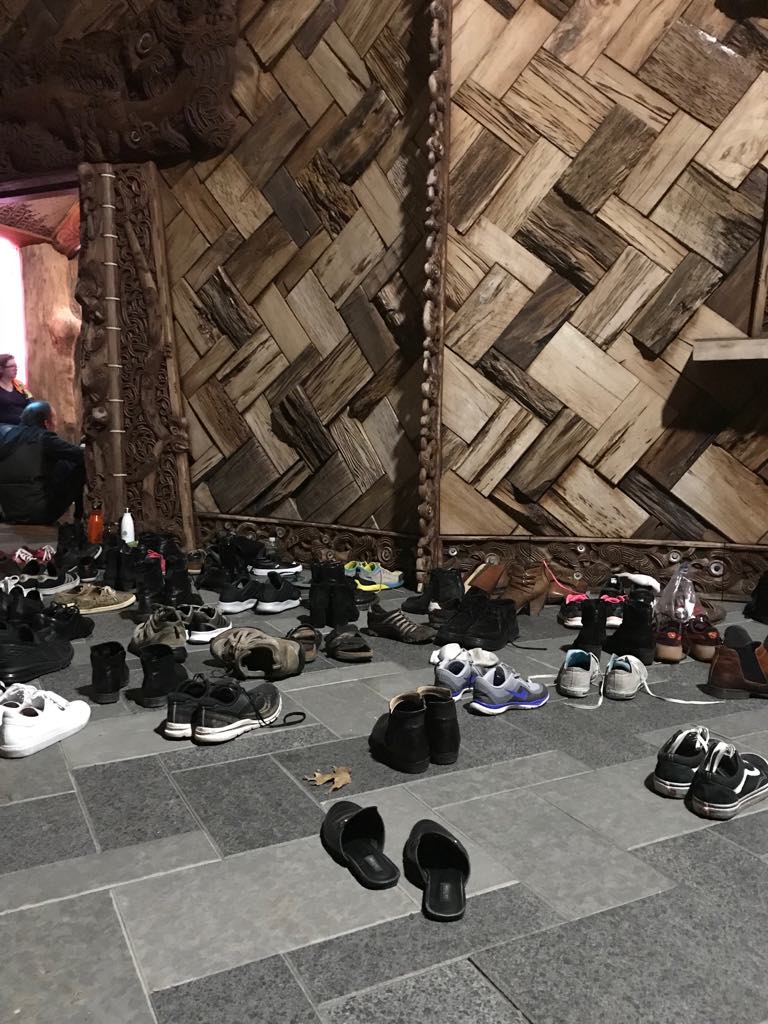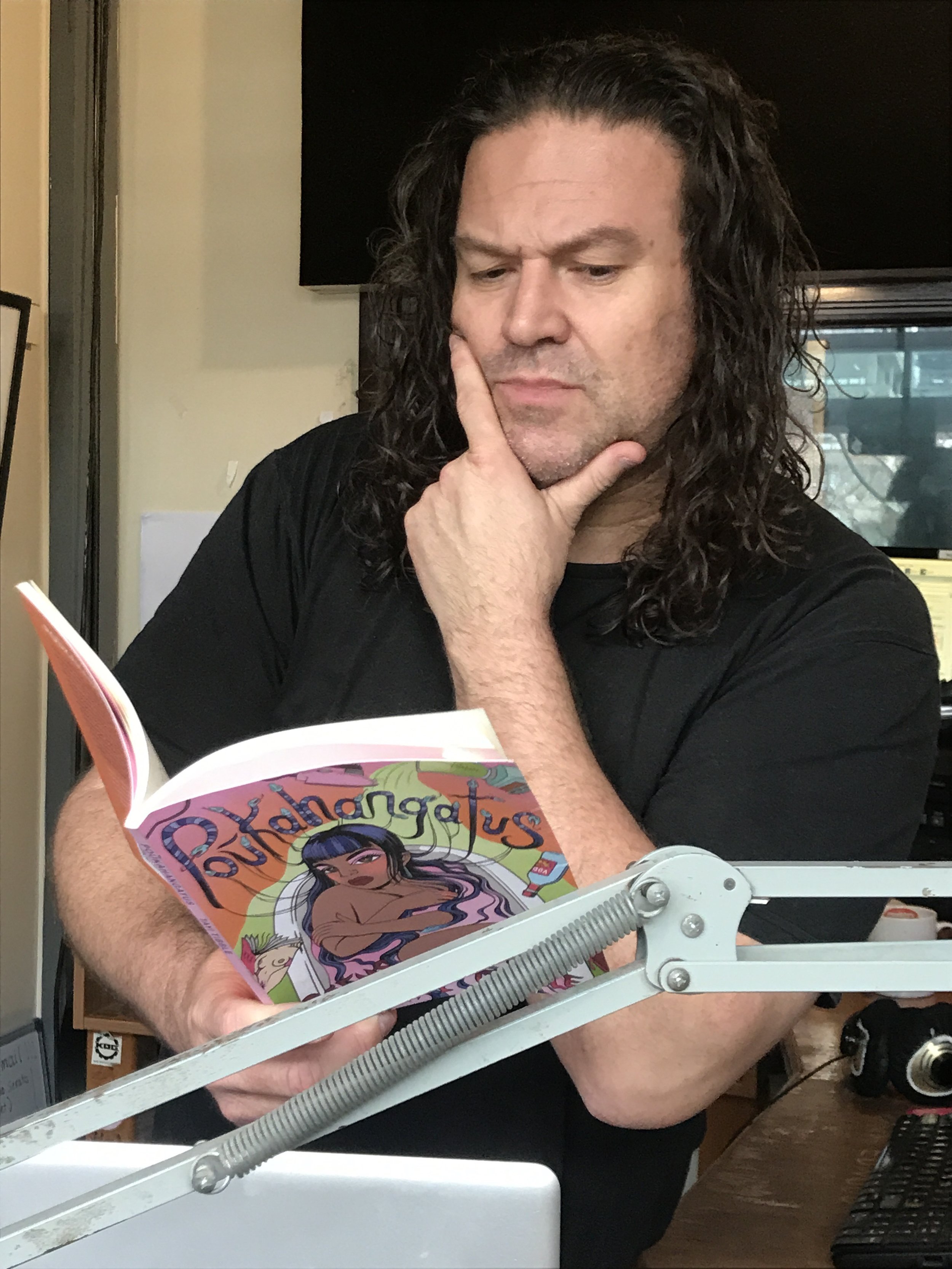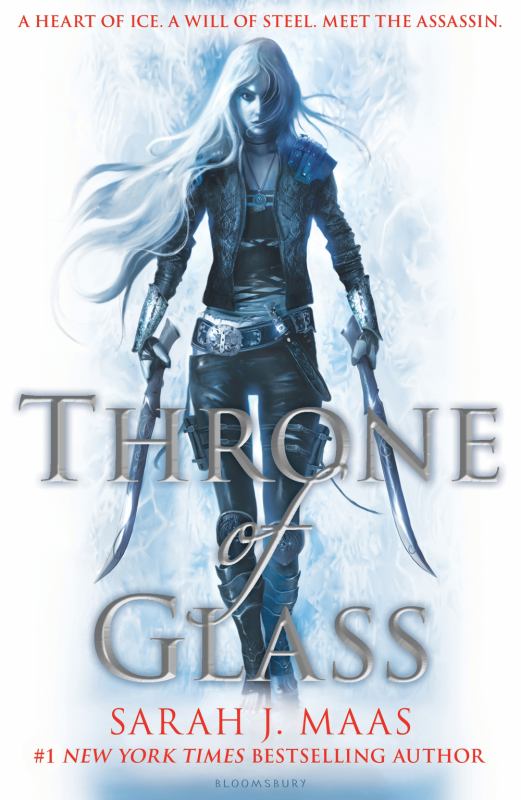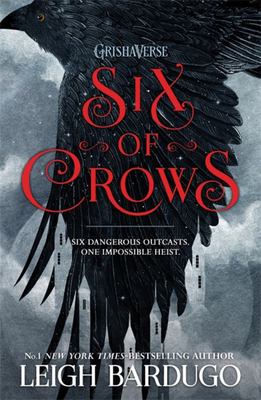On 95bFM’s Loose Reads, Kiran and Mikey talked about Mars By 1980: The Story of Electronic Music by David Stubbs. A thrilling deep dive into technology and invention, it propels us into sonic space and charts how developments in technology have shaped music over the years. One of the best music books of 2018!
95bFM's Loose Reads: Munmun by Jesse Andrews /
Today we have a special school holiday edition of Loose Reads. Jenna & Eli (13) popped into the 95bFM studio to chat to Mikey about Munmun by Jesse Andrews.
Set in a world where your physical size is based on your wealth, this is a compelling and poignant read for a young generation. This is a book that Eli recommends for readers 12+.
95bFM's Loose Reads: The Only Girl by Robin Green /
Kiran reviewed The Only Girl: My Life and Times on the Masthead of Rolling Stone by Robin Green on 95bFM’s Loose Reads. A juicy, candid memoir from journalist Robin Green who wrote excellent and often damning long-form profiles for iconic magazine Rolling Stone in its 1970s heyday, this is essential reading for lovers of pop and counter culture, West Coast bohemia, political reportage and pacey biographies.
Bestsellers for September 2018 /
Nine to Noon: My Year of Rest & Relaxation by Ottessa Moshfegh /
Jenna’s favourite novel of 2018!
It’s the year 2000 in New York, and our unnamed narrator decides to take a year off from life. By carefully mixing a cocktail of prescription medication, she will sleep through the year, emerging a new person, ready to slot back into society.
A laugh out loud, black as black comedy, that is layered, smart and sharp.
Staff Blog: Ellen's Psychological Thriller Picks /
If you like to snuggle down with a grisly tale full of twists & turns, Ellen is the staff member for you!
Recently we've had a lot of requests for a great psychological thriller, so as Time Out's resident crime & thriller reader, Ellen’s put together a few recommendations:
Resin by Ane Riel
Narrated both by 7-year-old Liv and various unsuspecting observers, Resin is a dark, captivating look at one man's crumbling mental state and his increasingly disturbing efforts to keep his dysfunctional family together. Translated from Danish, Resin's atmospheric prose builds an ethereal and claustrophobic forest world in which its characters slowly fall apart.
Snap by Belinda Bauer
In 1998, siblings Jack, Joy, and Merry are left to wait in their broken-down car while their mother goes to call for help—and doesn't return. Three years later, Jack, forced to become a serial burglar in order to keep his family afloat, begins to unravel the mystery of his mother's murder just as mum-to-be Catherine's happy world begins to disintegrate. Snap is a tense, dark, slow-burn of a thriller and well worth its praise - including a spot on the 2018 Man Booker longlist.
Baby Teeth by Zoje Stage
Battling her body at the same time she's locked in an increasingly disturbing battle of wills with her daughter, Suzette is nearing her breaking point. 7-year-old Hanna doesn't speak and doesn't go to school, but she knows there's not enough room in the world for both her and mommy—and she's determined to drive her out so she can have her daddy all to herself. Zoje Stage’s sharp, tense prose builds suspense until the very end, creates a deeply unsettling picture of family life, and raises a very uncomfortable question: is it possible for a child to be a psychopath?
The Nowhere Child by Christian White
Sammy Went disappeared three days after her second birthday, taken from her front garden in America. Twenty-eight years later, in Melbourne, photography teacher Kim Leary is approached by a stranger claiming to be her brother. Cutting between past and present, The Nowhere Child unravels the secrets of two families and a small American town, and though there are plenty of tense moments, it is an easy--but compelling--read.
The Woman in the Window by A.J. Finn
Anna Fox's agoraphobia keeps her trapped inside her home, forced to live vicariously through the snippets of life she sees unfolding across the street. Just as she starts to befriend her newest neighbours, she witnesses something she shouldn't. As Anna's carefully constructed life comes under siege, she is forced to confront her demons – and her neighbours. The Woman in the Window is an excellent mix of an unreliable narrator, slowly building suspense, and false starts that lead to an unexpectedly explosive conclusion.
95bFM's Loose Reads: Sabrina by Nick Drnaso /
On this 95bFM book review, Jenna takes a look at the first ever graphic novel to be longlisted for the Man Booker Prize. Sabrina is a quietly intense story of the people left behind after a woman goes missing. It’s a story of this moment - the internet age, the media & truthers and is well worth a read - even if you’re a graphic novel novice!
Listen below:
95bFM's Loose Reads: Messing Up the Paintwork: The Wit and Wisdom of Mark E. Smith /
Kiran nipped into the bFM studio to talk to the wonderful Rach and Tess about Messing Up the Paintwork: The Wit and Wisdom of Mark E. Smith, a book that celebrates the very quotable late Mark E. Smith from iconic group The Fall. A crabby, belligerant codger, Smith was known and loved for his sharp wit, caustic insults and wonderful way with words. You’ll want to read bits of the book out to anyone who’ll listen!
RNZ's Nine to Noon: Sex & Rage by Eve Babitz /
A spunky and glamorous figure of the 1960s and 70s LA counter culture, Eve Babitz was an alluring ‘It Girl’ who wrote startlingly sharp essays, memoir and fiction. Kiran reviewed the reissued edition of Babitz’s 1979 novel Sex & Rage: Advice for Young Ladies Eager for a Good Time on RNZ’s Nine to Noon.
95bFM's Loose Reads: Maori Made Easy by Scotty Morrison /
Te wiki o te reo Māori! Jenna visited the 95bBM studio to kōrero about Maori Made Easy & Maori Made Easy 2 - Scotty Morrison's reo learning series. If you're thinking about making the step to learning, these books are the place to start!
We also gave away a copy of the brand new Gecko Press book, Paraweta. You'll have to listen to find out what that means.
Haere mai koutou ki te Time Out toa pukapuka kia tipu ōu reo. Come to Time Out Bookstore to grow your reo. We've got a great selection in stock.
95bFM's Loose Reads: Dopesick by Beth Macy /
Suri gets serious on today's Loose Reads review. Dopesick is a deeply human investigation into the American opioid epidemic and the greed of corporations with blood on their hands.
A top pick from the current affairs section! Listen below:
Bestsellers for August 2018 /
95bFM's Loose Reads: This Mortal Boy by Fiona Kidman /
Today's 95bFM review is about Dame Fiona Kidman's This Mortal Boy. This is a novel based on the true story of Albert 'Paddy' Black, the second last man to be hanged in New Zealand.
Masterfully crafted, this is a heartbreaking tale. Jenna found it very engaging, very sad and it captures a strong sense of the time. The facts are there, but they are incredibly human.
Listen to the review below! And if you're in Hamilton this week, Kiran will interviewing Dame Fiona Kidman, Catherine Robertson and Julie Thomas for the ‘Fiction Three Ways’ panel discussion this Friday at Hamilton Book Month. It’s at the The Meteor, 6.30pm. It’s FREE and you even get a glass o’ wine. People of Hamilton, roll up!
Nine to Noon: Never Anyone but You by Rupert Thomson /
Never Anyone But You is a straight-up, no nonsense, excellent read. Through the eyes of two inspiring women, we see the glitz of the roaring 20's in Paris to the horrors of the German occupation on Jersey, we are reminded of the value of true love and companionship, whatever form that may take.
This is one of Wendy's favourite books of the year! Listen to Jenna's review below:
NZ Poetry Day Interview: Sam Te Kani /
Suri sat down with a familiar face from All Tomorrow’s Poets 2016, Samuel Te Kani. Sam is a writer and artist who works with a variety of different mediums. You can find his work on Pantograph Punch, Vice New Zealand, The Wireless and at various art shows in Auckland and Wellington.
Suri: So Sam, what have you been up to these days?
Sam: Well, the Vice show, ‘Sex With Sam’ so that took up quite a bit of time before Owen and I went to Wellington. We’re meant to be filming again this month, but no-ones hit me up, so I’m just going to wait for them to do that. There ends up being a lot of invisible labour around that stuff, like I don’t necessarily have a production credit, but they do expect me to go out and create content with them. That has to be negotiated with them.
Suri: What does the show centre around?
Sam: It’s just me talking to people about sex, so the title’s very self-explanatory. We’ve done three episodes; one at The Basement cruise Lounge. I was talking to Stu, he’s one of the owners, so just talking to him about what the BDSM culture’s like here and what goes on at a cruise lounge. Then we talked to a guy at the University of Auckland who’s looking at porn and porn addictions at a research level; I think his name’s Chris Taylor. Then we talked to Pierre who works at one of the Peaches and Cream [stores] down K Road, the one on the corner that I didn’t realize still has one of the cruise spaces out the back. I thought that once they’d been taken over and franchised, they would have shut those spaces down, but they’re still operating. We did not expect to find that when we went in. At the back of that, in the corner, there’s a porn cinema and you can pay twelve bucks and go out the back, watch some porn, fuck a stranger.
Suri: Did you watch anything there?
Sam: Yeah, we did. They cut that out for the episode, though. I was thinking while they were doing the interviews there, whether they were going to have to subtitle it, blur out the huge queef that was going on behind us, but they just cut it out altogether.
Suri: That’s a shame, that would have been cool to have in there.
Sam: Yes it would have been; very ambient.
Suri: You have your hand in so many different art mediums
Sam: That’s entirely accidental. I’ve just been chugging along, doing little freelance things; the hustle. The sex blog I did ages ago- that provided a bunch of opportunities once that became semi-popular. You know Le Roy by DDMMYY? Through the sex blogs, they were like ‘Woah this is rad, do you want to contribute?’ and I was like ‘sure!’ That was the first time anyone had asked me to write for them. I contributed to three issues and then he went and published the whole blog in a one-off called LR: Stories We Tell Ourselves which was rad. I’ve written for art shows. One of my short erotic sci-fi stories went to this art show with Dan Nash and Tim Webbie down in Christchurch. It was in the show rather than just being part of the publication. Also writing for publications alongside art shows, mostly for Artspace; then was in a an art show for Artspace last year. I’d never done anything in a visual medium before. I made a Lady Gaga sculpture with a black demon sitting in a pink coffin filled with dirt.
Suri: IN-CREDIBLE
Sam: It was amazing, it’s sitting in my room now.
Suri: Do you have a photo? I’d love to see that.
Sam: Yeah I’ll take a photo and send one to you haha. The sculpture itself which is a giant black demon that’s got plastic vines and LED lights on it, is in one corner of my room, and I’ve taken the pink coffin; it obviously doesn’t have dirt in anymore; and used it as a bookshelf in the other corner of my room.
Suri: Multipurpose
Sam: Yes, utilities.
Suri: I feel like Lady Gaga would love that
Sam: I know, I did call it Garden of Failure though, so I don’t know how she’d feel about that. But I love her and the whole idea was that the Artpop album, which was a commercial flop compared to Born This Way which was a huge album for her; after that her career got really weird, and it was almost like that failure gave her an opportunity to be more free. I had Lady Gaga and the album as a visual reference for the work, but then it was also like Halberstam’s The Queer Art of Failure. Gaga’s career trajectory definitely ties in with that.
Suri: What drew you to poetry?
Sam: I never actually wanted to write poetry and a lot of the readings that I’ve done have been like poetry nights and I’ve either read a piece of fiction or an essay. I don’t even really write poetry but there are aspects of my experimental prose that you could call poetic.
Suri: Are you reading any good poetry books at the moment or have you come across anything recently?
Sam: I’m mostly reading sci-fi at the moment. I’m reading this tome called Helliconia and it’s about this planet called Helliconia and one seasonal year on this planet is like 1800 earth years. There are aspects of it that are very Game of Thrones like the idea that there are long summers and long winters. It pre-dates Game of Thrones by about 20 years. I feel like George R Martin is definitely aware of Helliconia.
Suri: Have there been any poets in the past that you’ve loved or enjoyed?
Sam: The one poetic text where I was like ‘oh, that’s rad’ was The Autobiography of Red by Anne Carson. Really, really liked that. It’s very prosey but definitely counts as poetry. Also the classics, like The Odyssey, The Aenid. The Aenid’s the one with Dido, right? Dido’s like crying out for her dead lover on a cliff. Oh, I also loved Sylvia Plath in school. Sylvia speaks to the 14 year old in me.
Suri: Same, so moody
Sam: Yeah so fucking moody, oh my god.
Suri: I’m such a sucker for misanthropy, especially in poems
Sam: I’m there right now girl, after my 50 hour week.
Suri: We’ve also been talking to our poets about the irreverence in poetry nowadays. I found that with your last reading at All Tomorrow’s Poets, your ability to be clever and not take yourself so seriously, was really refreshing. Now you have people like Hera and Tayi who write about sex so audaciously.
Sam: I do like that. I love that. I do think poetry itself takes some of the formality of language and exposes its fluidity so it can really disassemble what we might take for granted as formal codes and liberate them. I guess it makes sense then, that in a contemporary form, poetry is a lot more open to talking things like sex and a modern pathos where everything is in flux and there’s a volatility to living in the times that we do right now where institutions that have stood as monoliths post-War are now kind of like dying.
Suri: Jamie (de Jong) wanted to ask our other poets about their writing process. Do you have any advice?
Sam: Muscle memory; I think a lot of writing boils down to muscle memory and getting used to sitting down and writing every day
Suri: Do you have any questions you’d like to ask our other poets?
Sam: If you were microdosing, what would you be microdosing with?
Sam will be performing at Time Out's All Tomorrow's Poets on National Poetry Day. Check out the event details here.
95bFM's Loose Reads: Poukahangatus by Tayi Tibble /
In anticipation of this week's NZ Poetry Day and our All Tomorrow's Poets event, Suri visited Mikey and Sarah in the bFM studo to talk about Poukahangatus by Tayi Tibble, published by Victoria University Press.
RNZ's Nine to Noon: Mayhem by Sigrid Rausing /
Kiran reviewed Mayhem: A Memoir by Granta publisher and editor Sigrid Rausing on RNZ's Nine to Noon. It's a beautifully poised and clear-sighted account of addiction, and is such an extraordinary and bizarre story, you couldn't make it up!
95bFM's Loose Reads: Paul Simon: The Life by Robert Hillburn /
In preparation for Father's Day, Jenna reviewed the ultimate DAD ROCK biography of Paul Simon. This is the only authorised biography of this notoriously difficult musician's life.
Jenna, Sarah & Mikey discuss poor Art Garfunkel, the muppets and Graceland.
Jenna also mentions this excellent documentary about Graceland, Under African Skies. You can watch it here.
NZ Poetry Day Interview: Janna Tay /
Time Out staff Surinam Reddy and Jenn Cheuk sat down with Janna Tay to talk shifting poetry landscapes and platforms for youth.
Janna studies law, politics, and philosophy at the University of Auckland. She is the author of a micro-chapbook Late Summer (Ghost City Press). Her poetry has appeared in Starling, Polyphony H.S., and -Ology Journal, and she won second prize in Landfall’s 2018 Charles Brasch Young Writers’ Essay Competition. In her spare time, she runs Oscen Magazine, a platform aimed at uplifting marginalised voices (http://oscen.co)
Suri: So Janna, what is it like to be a young poet in New Zealand?
Janna: It’s strange because I don’t really think of myself as a poet. It’s like when you give a name to something, it suddenly becomes real. It’s just been this thing I’ve done in my spare time, like reading and writing. I think I have talked about this with friends; you feel a sense of being an impostor to call yourself a poet or a writer.
More and more, I’m thinking of it as a way of being, like an attitude- that to be a poet is to look at the world in a certain way. There was an interview that I was reading with Ocean Vuong looking at the meaning of the word poet and he was like “to remember is to be a poet” and it’s just the idea that the way you’re wired makes you a poet.
Jenn: How would you define being a poet?
Janna: It would definitely be an attitude and a way of seeing the world because I’ve really been thinking about the idea of wonder at the world and just what happens when you switch a perspective to start looking at and noticing certain details and certain things. It’s actually shifted my whole attitude towards life. I’m finding joy or beauty in really mundane things that you might not notice because you’re in your daily grind.
Suri: You have these really beautiful moments in your poetry and some of it feels like really interesting universal ideas or feelings but making them quite specific and intimate, like in all of those little descriptions. They’re just so good.
Janna: I’ve definitely been inspired by different writers, just learning how to pull that all together.
Suri: Who are some of your inspirations?
Janna: This came a bit later, but one of the most important ones to me is Michael Ondaatje. He writes poetry and prose as well, but I started out with his prose and he’s such a poetic prose writer but such a prosaic poet; it’s almost genre-less for him. The way he writes, he builds characters from memory and certain moments, like the way they’ll move or certain aspects of the character related to a piece of clothing and he’ll take that thing and take you all through their history and it comes full-circle through this collection of details. Someone’s called him a memory artist, which I really love.
Recently I went to the Writers Festival to see Durga Chew-Bose and she described herself, and I really resonate with this, as a writer of periphery, so she doesn’t care about plot and neither do I. If you’ve got a book and it’s got explorations of character- that’s my favourite kind. I struggle to follow plot and find the logical consistencies, I just don’t really care about it. She said that it’s less about the plot- if you’ve got someone putting on make-up on public transport, that is the plot.
Jenn: What excites you about the current poetry landscape?
Janna: I think the fact that it’s becoming more and more accessible and so many new ideas are coming in. The danger I think, when you only have a certain group of people writing poetry, is that they start bouncing ideas off each other and it just becomes very insular. What’s exciting to see is almost anyone pick up poetry and be like ‘Hey I’m bringing my perspective to it’ and it might be something we’ve never seen before. Like I would also get inspiration from a different point of view and it’s just a learning experience from a whole lot of different people.
Jenn: Do you think people are becoming more open-minded to poetry, because there is this stigma around it being elitist or pretentious, do you feel like that’s changed?
Janna: I think there definitely is, especially around slam poetry. People I would never have talked to about my poetry, or page poetry (the kind of thing you’d study at an English Literature class and people are like, ‘I don’t get it’) they’re going along to slam poetry events and they’re like ‘Oh this is actually resonating with me in a language I understand’. That’s exciting to see and I hope it boosts support for the arts.
Suri: There are a lot of young New Zealand poets who are writing really exciting poetry, and I wonder if that change in the landscape has made it more accessible?
Janna: Yeah, you’re starting to see it a lot more in general media rather than just the people you know who’d interact with it.
Jenn: It’s become ageless now; like it’s transcending. It’s cool to see that change.
Suri: I guess there’s more of an irreverence and playfulness in the way poetry is told too.
Suri: Are there any contemporary poets whose work you’ve been enjoying recently?
Janna: I’ve just been reading ‘Bright Dead Things’ by Ada Limon and that was amazing. The way she writes poetry is, I feel, very different from mine and I really admire the way she does it. It seems very descriptive and kind of casual, but by the end, she takes this starting image and flips it on its head and there’s a moment of clarity when the whole preceding part of the poem is shown in a different light. I think I write quite obscurely- I just move from image to image, whereas for her, it’s just so tightly bound up that you don’t feel it until the end, the amount of talent she has.
Suri: Do you find there’s things you can draw from people like that whose poetry is quite different from your own? Do you think it impacts the way you write your own poetry?
Janna: Definitely. Like I’ll try and see how I can bring it into my own and put my own take on it. Also just as a technique, as a way to push myself to write in a different way.
Suri: I remember a while ago, in reference to a poetry book that had become very popular, we had a big discussion around instagram poets and what makes poetry and what isn’t poetry. How would you define poetry?
Janna: I guess, in relation to the instagram poets, they feel a bit more like thoughts to me- thoughts you dash off quickly. That’s not to discount it for what value it does have.
For me, when I write poetry, it requires a lot more design. You write down your thoughts but you go back and you think about the line and the rhythm, and the way that you break the line and what that does to the meaning- how you convey what you want to express, rather than just dashing it down on a piece of paper. At the same time, it feels a bit arbitrary to say that you have to spend work and time on it in order for it to become poetry. It’s a little bit dangerous to put one definition on it.
Suri: What drew you to poetry over other writing forms?
Janna: At first it comes across as something that’s very visceral. I’ve talked about this with friends before- like the thing that draws us to poetry: you’ve got feelings and you’ve got to put them down somewhere and there’s not necessarily a story from it or you don’t have to devise characters for a novel. When I was little, I used to love writing stories because I used to love creating characters, but I’d never get further than characters because I just don’t care about plot apparently. I’ve never really cared about plot. To come to poetry- it was an easier form at first, but then you realise how hard it is to make it good and that became like a puzzle and I just kept writing.
Suri: Was it exciting to have your work published in Starling?
Janna: Yeah it was really exciting and Starling are amazing. Frances and Louise keep in touch in the sense that if they see you published anywhere, they’ll instantly repost it on social media. They’re really supporting the community that they’ve built, and I really appreciate that from them. I’ve recently with friends, started my own platform called Oscen and we’ve gotten young writers as well and Starling jumped on board and started promoting us too. I never even mentioned it to them so it’s amazing to see their support in the community.
Suri: It’s really cool to see young New Zealand women being the ones pushing the change in poetry.
Janna: The contrast from what we studied, which was dead white European guys, to see the landscape now is really exciting. It’s the stories that get told and published that get remembered, and we haven’t had the ability to remember in that way for so long.
Janna will be performing at Time Out's All Tomorrow's Poets on National Poetry Day. Check out the event details here.
Staff Blog: Taylor's Top YA Fantasy Picks /
Taylor with Laini Taylor in 2014.
I wrote a review recently which listed my top picks for adult fantasy books (you can read it here). Now it’s time to list my top picks for young adult fantasy! I’m going to attempt to write three young adult pick posts, because I can’t separate out my favourite authors from each other unless I do so by separating out their subgenres. My goal is to write one for fantasy (well done me, I’m already a third of the way there), dystopian and contemporary. Now there are plenty of other sub genres, but let’s just say those are my favourite three.
Today we start with fantasy. What I love about YA fantasy at the moment is that it is doing things that other people, other genres, can’t or don’t dare to do. There are so many layers of subtext and cultural critique in YA fantasy right now, and it works because it doesn't offend anyone, because the cultures and the powers -that-be are fictional. So, here are my top five:
Throne of Glass - Sarah J. Maas
This is a bit of a sprawling epic (weighing in at 8 volumes, including a collection of prequel novellas, with the last book to be released later this year). These were the books that made me fall in love with ready fantasy again. These were the books that inspired me to write my own. The series begins with Celaena - an assassin who has been captured and in serving time in a prison camp. She is enlisted by the prince to compete to become his father’s champion. If she wins the competition she is to serve the king for four years and will then be granted her freedom. The problem is, she hates the king with every fibre of her being.
It’s difficult to do this series justice in a short summary, and to do so without giving major spoilers away is impossible. Let’s just say this series includes badass assassins, magic, Fae, love, heartbreak, grief, friendship, demons and a WHOLE lot of sass.
Daughter of Smoke and Bone - Laini Taylor
Karou is a blue-hair art student, living in Prague. By day, she goes to school, sketches and hangs out with her best friend Zuanna. By night, she collects teeth for monsters in exchange for wishes. But when devastation comes to those she loves, she is forced to face her past and take up the mantle of her future. This trilogy is about love and discrimination, about forgiveness and revenge. It’s Romeo and Juliet, but with monsters and angels. Laini Taylor is one of my all time favourite linguistic writers, her words and sentences and paragraphs are beautiful perfection - evoking emotions, imagery and drawing you into this exceptional world she has created. She is also releasing the final installment in her duology (Strange the Dreamer) later this year.
Six of Crows - Leigh Bardugo
This duology is Ocean’s 11 meets Avatar the Last Airbender. Kaz Brekker is tasked with breaking a man out of a prison no one has ever escaped from. This man is the creator of a drug that could mean the undoing of the world Kaz knows. He puts together a team of 6 individuals, all who bring their own unique talents to the mission. “A convict with a thirst for revenge. A sharpshooter who can’t walk away from a wager. A runaway with a privileged past. A spy known as the Wraith. A Heartrender using her magic to survive the slums. A thief with a gift for unlikely escapes.”
Leigh Bardugo is the queen of plot twists, and this book will keep you twisting and guessing and gasping just like a good heist novel should. There is another trilogy that technically comes before this series, set in the same world just a few decades earlier. It is not necessary to read that series first (I didn’t) but if you love this one you might just want to read Shadow and Bone too.
An Ember in the Ashes - Sabaa Tahir
What I loved most about this series when I first heard about it, is that it is a fantasy world inspired by ancient Rome rather than medieval britain. It is a quartet and the third book (A Reaper at the Gates) has just been released in July. The story follows two protagonists; Laia and Elias. Laia is a Scholar who has grown up in the slums, witnessing the oppression of her people. Elias is a Martial, training at one of the empire's finest military schools despite detesting the very tyranny he’s being taught to enforce. When a mission for the Scholar Resistance sends Laia uncover into the school, she uncovers that there is more going on than the endless war against the Scholar and the Martials, and her life and Elais’ are changed forever.
Ink and Bone - Rachel Caine
This world revolves around the questions: What if the Great Library of Alexandria had never burnt down? With a little bit of magic thrown in for good measure. In this world, the Library is the ultimate power; higher than law, higher than religion. The Library controls the flow of knowledge to the masses —but it is illegal to own a book. Jess has grown up in a family of book smugglers, but he believes in the values of the Library. When he is sent to train as a scholar of the Library by his father, to work as a double agent and steal books for the family to sell, Jess is confronted with a choice: The Library or his family. What he doesn’t yet know is that the library has been repressing the invention of a device that would make books easy to create and distribute to the masses, the revelation of which sets Jess and his friends on a dangerous path.
The world building in this series is fantastic, it has the perfect mix of real world, what could of been, and fantasy elements. The plot moves slowly, but keeps you hooked in and wanting to know more. This series is also a quartet, and the last in the series was just released last month.
